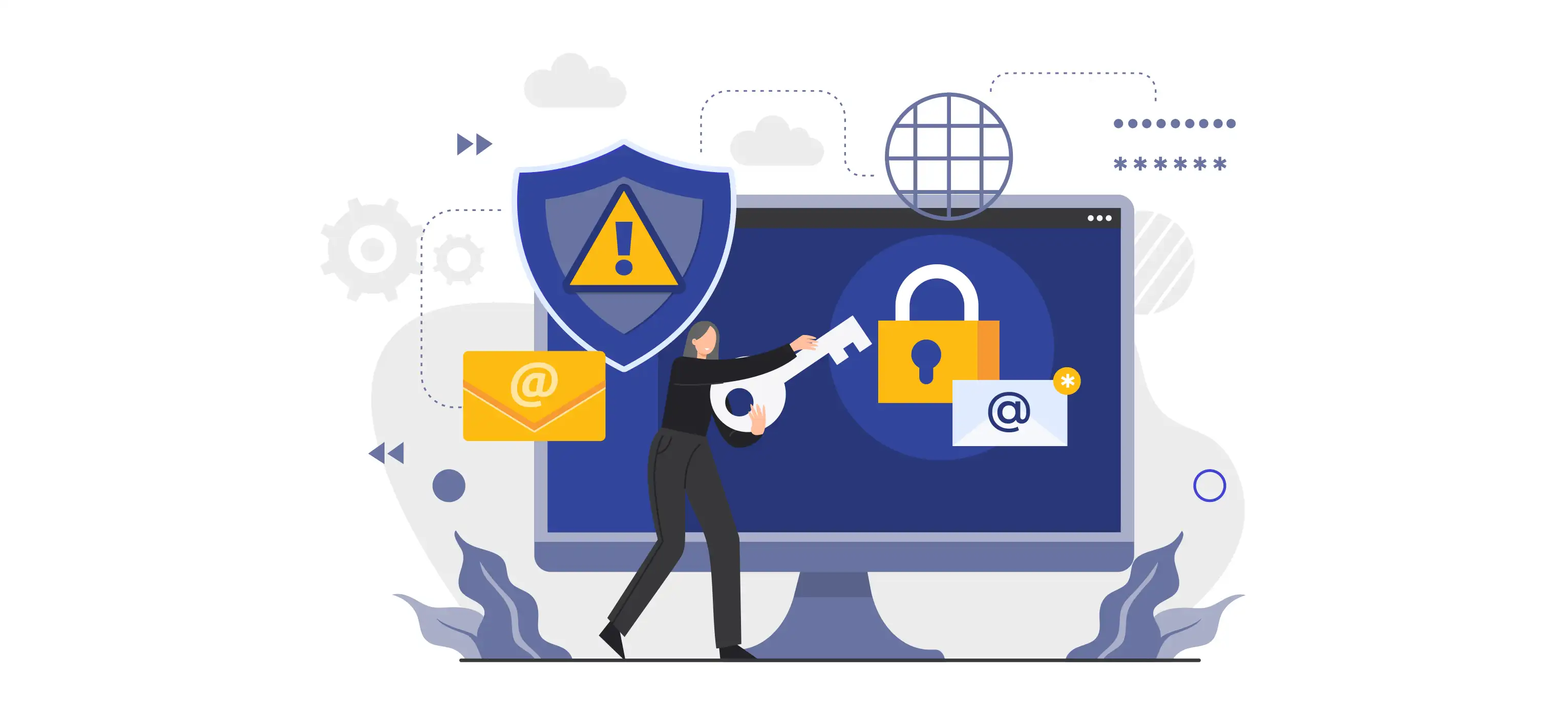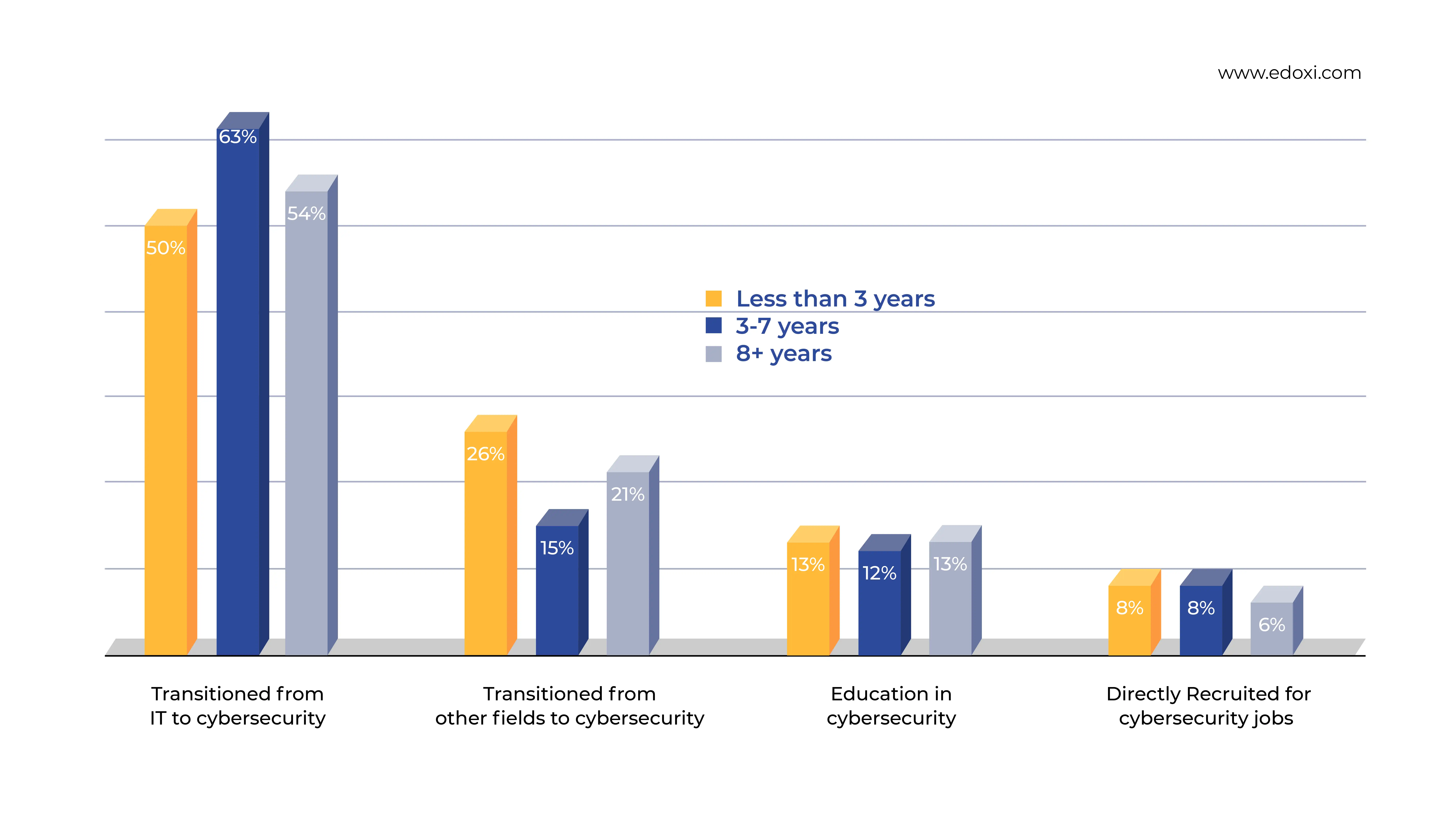 Satendra K
Feb 17, 2025
Satendra K
Feb 17, 2025

To successfully upskill for a cybersecurity career change, start by assessing your skills and setting clear career goals. Build a strong foundation in networking security. Then gain hands-on practice with tools like Kali Linux and Wireshark. CTFs, bug bounties, and labs are good ways to gain experience in this area. Don't forget to develop your soft skills as well! Communication and problem-solving are crucial in cybersecurity. Finally, craft a strong resume, prepare for interviews, and showcase your expertise. With focus and persistence, you can successfully transition into cybersecurity!
The cybersecurity landscape offers many exciting career opportunities for individuals seeking a challenge and a chance to make a real impact. According to the U.S. Bureau of Labor Statistics, employment in information security is projected to grow by 35% between 2021 and 2031, which is much faster than the average for other industries. This growth means there’s never been a better time to leap into cybersecurity, especially if you’re willing to invest in the right skills and certifications.
Cybersecurity is one of the fastest-growing industries, with organisations constantly seeking skilled professionals to protect their data from evolving cyber attacks as well as the most common cyber threats. According to the (ISC)2 Cybersecurity Career Pursuers Study, 55% of cybersecurity professionals have transitioned from IT, and 21% started their careers in another field and then transitioned to the cybersecurity field. Only 13% got into cybersecurity after receiving a cybersecurity education and 8% explored cybersecurity on their own before being recruited to the field.
This is encouraging news for individuals considering a career change into cybersecurity. The industry welcomes professionals from diverse backgrounds. With the in-demand cybersecurity skills, certification, and passion, a successful transition to a Cybersecurity Career is entirely possible!!!

Now that you know how welcoming the cybersecurity field is to career transitioners, The next important step is to upskill for a Cybersecurity career change! This guide outlines essential steps to upskill and launch your cybersecurity career, whether you are an IT professional making a career change, transitioning from an entirely different field, or a recent graduate.
Let's take a look at the strategic 8-step approach to successfully transition into a rewarding cybersecurity career, regardless of your current background.
First things first—let’s take a good look in the mirror. Performing a self-assessment is crucial. What skills do you already have? What interests you the most in cybersecurity? Once you have a clear picture, set some specific career goals. Are you aiming to be a penetration tester, a security analyst, or maybe a cybersecurity consultant? Having clear goals will guide your learning path.
You can start by evaluating your existing skillset, ie both technical and interpersonal skills:
Next, explore the diverse cybersecurity specialisations. The field of cybersecurity is incredibly diverse, offering a wide range of specializations to suit different interests and skill sets. Here are some of the most popular and in-demand cybersecurity specializations:
This is just a glimpse into the diverse world of cybersecurity specializations. As technology evolves, new specialisations are constantly emerging. The field offers exciting opportunities for individuals with different backgrounds and interests. Research different specialisations and find one that aligns with your skills and interests.
Next is building that solid foundation! Start by diving into the basics of cybersecurity. Cybersecurity is the practice of protecting systems, networks, and data from cyber threats. It involves various concepts, tools, and frameworks to ensure digital security.
Familiarize yourself with key concepts like networks, encryption, and threat detection. There are many online courses and resources available today that can help you. Plus, many of them are super engaging and interactive! Establishing a solid foundation is crucial before diving deeper into specific cybersecurity domains. The following are some cybersecurity concepts that you should be aware of;
| Networking Fundamentals |
Network Protocols (TCP/IP, HTTP, and DNS), IP addressing, routing, switching, and network topologies (LAN, WAN, VPN).
|
| Cybersecurity Concepts |
Security Threats like malware, phishing, denial-of-service attacks, and ransomware and recognise vulnerabilities and Security Controls
|
| Cybersecurity Tools |
Security Software and tools like antivirus software, firewalls, intrusion detection systems, security information and event management (SIEM) systems, Penetration Testing Tools and Forensic Tools.
|
| Cybersecurity Frameworks |
NIST Cybersecurity Framework (five core functions - Identify, Protect, Detect, Respond, and Recover), ISO 27001(international standard for information security management systems), and other relevant frameworks like PCI DSS for payment card security and HIPAA for healthcare information security.
|
Starting a career in cybersecurity often begins with obtaining a relevant degree, such as a Bachelor's in Computer Science, Information Technology, or a related field. This educational foundation is crucial as it provides essential knowledge in programming, systems architecture, and data management.
In addition to formal education, industry-recognized cybersecurity certifications play a significant role in enhancing your credentials and showcasing your expertise to potential employers. Some of the most sought-after certifications include CompTIA Security+, which serves as an excellent starting point for entry-level positions by covering fundamental security concepts. The Certified Information Systems Security Professional (CISSP) designation is more advanced and ideal for those aiming to specialize in information security management. Here are some recommendations for you;
The benefits Of Cyber Security Certifications are numerous and the most important is that they give you credibility as a cybersecurity professional!
Pro Tip; Consider participating in capture the flag (CTF) competitions or contributing to open-source security projects. These experiences not only enhance your skills but also give you something impressive to talk about in interviews!
Isolation won't propel your cybersecurity career. Actively engage with the vibrant cybersecurity community! Participate in online forums dedicated to cybersecurity discussions and attend industry conferences and meetups to connect with professionals.
These interactions provide invaluable insights, expose you to emerging trends, and potentially open doors to mentorship opportunities. Building a strong network fosters collaboration, accelerates learning, and positions you as a well-connected and engaged individual within cybersecurity.
Landing your dream cybersecurity role hinges on a well-crafted resume and cover letter. Here are some tips you can follow when crafting a resume:
Preparation is key to conquering your cybersecurity interview. Research the company and understand its security posture. Anticipate common interview questions (both technical and behavioural) and practice your responses, highlighting your problem-solving approach and technical expertise. Project confidence, enthusiasm, and a genuine passion for cybersecurity. Remember, the interview is a two-way street – ask insightful questions to demonstrate your genuine interest in the role and the company.
The cybersecurity landscape is a living organism, constantly evolving with new threats and technologies. Embrace lifelong learning to stay ahead of the curve. Utilize industry publications, security blogs, and vendor training to keep your knowledge current. Consider pursuing advanced certifications to specialize further and demonstrate your dedication to continuous improvement. Remember, the journey of learning in cybersecurity is never-ending, and your commitment to staying informed will be a valuable asset throughout your career.
|
Pro Tip for You to Follow Establish SMART goals:
|
The path to a fulfilling cybersecurity career is paved with dedication and continuous learning. These steps will give you knowledge, skills, and networks to thrive in this dynamic field. Embrace the challenge, leverage the wealth of resources available, and embark on a rewarding journey where you can make a real difference in protecting our digital world. Key takeaways for upskilling for a cybersecurity career change: